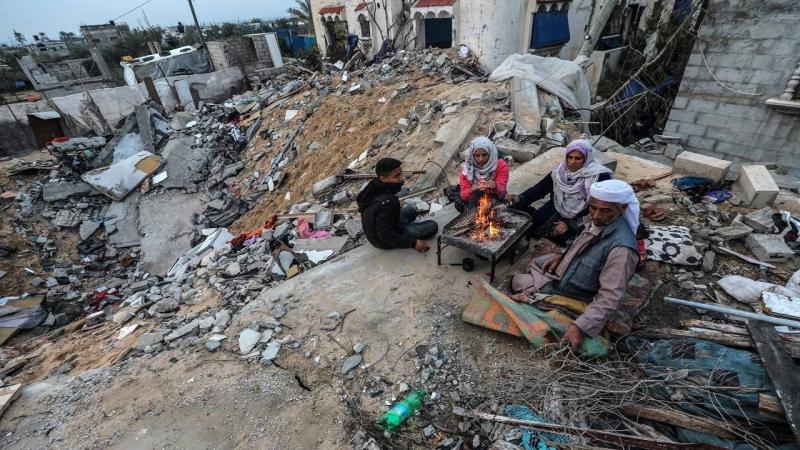U.S. intelligence warns of an imminent large-scale war between Israel and Hezbollah, suggesting that a comprehensive war will soon break out between the two sides unless Israel and Hamas reach a ceasefire agreement in Gaza. Despite intensive negotiations mediated by the United States, the Gaza deal is not on the horizon. U.S. President Joe Biden and his national security team are trying to convince Israel and Hezbollah to stop the war, but so far without success. Israeli Prime Minister Benjamin Netanyahu and his allies are under domestic political pressure to push Hezbollah away from the border so that the 60,000 Israelis who fled from the northern part of their country due to Hezbollah rocket fire can return home. According to two senior U.S. officials familiar with current intelligence, both the Israeli army and Hezbollah have drafted battle plans and are now shopping for more weapons.
U.S. officials fear that violent fighting between Israel and Hezbollah could ignite a regional conflict and draw U.S. forces into the battle to help defend Jerusalem. Some European intelligence agencies have provided more dramatic assessments. Several European countries and Canada have advised their citizens to leave Lebanon, and Canada is preparing to evacuate its citizens. The Pentagon is moving U.S. military assets, including the USS Wasp, an amphibious assault ship, and Marines from the 24th Marine Expeditionary Unit, closer to Israel and Lebanon to be ready for the evacuation of Americans.
What concerns Washington and the West is the potential for southern Lebanon to become another Gaza, which could then extend to all of Lebanon. Satellites have shown how Israeli airstrikes have destroyed the Lebanese border village of Aita al-Shaab over months of cross-border bombardment. The village is known as a stronghold of Hezbollah. This has prompted the U.S. to prepare for the evacuation of Americans from Lebanon if fighting intensifies between Israel and Hezbollah.
U.S. officials are increasingly concerned that Israel will carry out airstrikes and a possible ground invasion in Lebanon in the coming weeks; the USS Wasp moved to the Mediterranean last Wednesday to join the dock landing ship USS Oak Hill and another ship in their amphibious readiness group, according to the Marine Corps. The Wasp unit and the Marines aim to project military power and serve as a deterrent to regional escalation, according to a U.S. official familiar with the plans.
Despite pressure from the Biden administration, Israeli officials have remained firm in their desire to target Hezbollah in Lebanon, according to U.S. officials familiar with the discussions. Israel hopes to establish a 10-mile buffer zone along the Lebanese border, according to U.S. and Israeli officials. An Israeli official stated that Israel wants to push Hezbollah away from the border and is pushing for a diplomatic solution, but if that fails, the Israeli military is prepared to use force. Marines from the 24th Marine Expeditionary Unit are being trained to assist civilians in escaping dangerous environments. The Wasp group also has offensive and surveillance capabilities and can deploy long-range F-35 stealth fighters.
The U.S. is also communicating with close allies to coordinate evacuation operations and any coalition military operations, according to U.S. defense officials. Israeli Defense Minister Yoav Galant was in Washington last week to meet with senior Biden administration officials, where all plans, especially diplomatic ones, were discussed.
On the other hand, Iran and one of its proxies, Hezbollah, are not seeking a full-scale war with Israel; they prefer the current situation, which puts Israel under international pressure. According to current and former U.S. officials and Western officials, the fighting in Gaza and the north is draining the Israeli military, fueling domestic political divisions, and building tensions with Israeli allies. U.S. officials still state that they see no evidence that a major escalation is imminent.
In response to a question about whether the United States is taking additional precautions in the region as tensions rise between Israel and Hezbollah, White House National Security Council spokesman John Kirby stated last Wednesday: "It is something we are monitoring closely. We continue to monitor. We are also adjusting our force protection measures and protocols as the threat changes." In a statement, Adrienne Watson, spokeswoman for the White House National Security Council, said restoring calm along the Israeli-Lebanese border "remains a top priority for the United States and should be of utmost importance to both Lebanon and Israel. We continue to work towards a diplomatic solution that allows Israeli and Lebanese citizens to safely return to their homes and live in peace and security."




